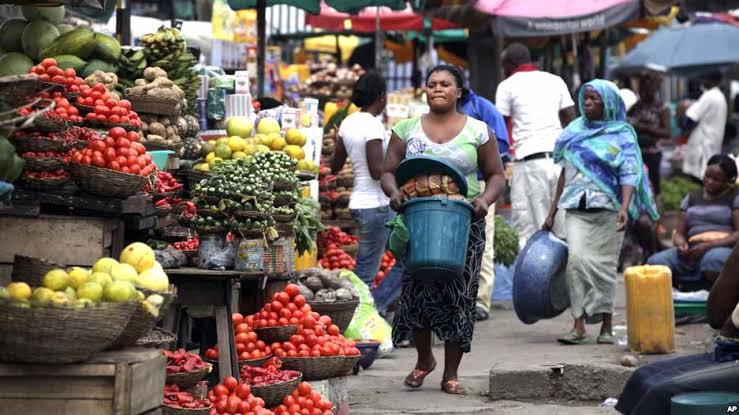A joint study by Consumers International and Consumer Advocacy and Empowerment Foundation (CADEF) has revealed worrying trends in Nigeria’s food pricing landscape.
The research spans six geopolitical zones and focuses on fluctuations in food prices, especially staple items like yam, garri, rice, beans, chicken, and groundnut oil between the months of November and December 2023.
The study noted significant differences in price changes across the value chain, with consumers facing much higher increases compared to farmers.
According to the study, November and December brought forth noteworthy shifts in the percentage changes across the value chain for key commodities—beans, chicken, maize, and yam.
For example, in November, beans, chicken, and maize saw retail price increases of 127%, 176%, and 134%, respectively, compared to farmgate price changes. While these figures decreased in December, they remained high, particularly for beans (98%) and maize (111%). Notably, yam prices also jumped by 87% at the retail level in December
“These fluctuations serve as a lens through which we can examine the intricate interplay of market forces, presenting opportunities and challenges alike. At the farm gate level compared to the retail level, in November, beans, chicken, and maize took the spotlight with substantial percentage changes of 127.29 per cent, 176.16 per cent, and 134.07 per cent, respectively.
“The stage altered in December, witnessing a recalibration of these figures. Beans retained prominence, albeit with a reduced percentage change of 97.84 per cent, while chicken and maize experienced shifts to 41.10 per cent and 111.45 per cent, respectively. Intriguingly, yam emerged as a contender in December, securing a notable percentage change of 87.34 per cent,” the study disclosed.
Reacting to the findings of the study, the Executive Director of the Consumer Advocacy and Empowerment Foundation (CADEF), Prof. Chiso Okafor, stressed the need for regulatory intervention to ensure fair pricing in food markets, adding that the findings underscore the urgent need for authorities to investigate and address any unfair practices that may be contributing to the burden on consumers and farmers.
“As advised in our last press release, understanding the factors driving these fluctuations is crucial for market analysis and decision-making. These fluctuations underscore the volatility within the retail sector, where even slight changes can have palpable impacts on consumer accessibility and affordability.
“We urge stakeholders to closely monitor these trends, engage in ongoing analysis, and remain adaptable to the evolving dynamics of the commodity market. The overarching concerns emanate from price variations at each level of the value chain. The potential impacts on farmers’ income, supply chain stability, and consumer affordability necessitate collective attention,” Okafor recommended.
In response to the identified challenges, the Executive Director also encouraged stakeholders to commit to a call to action. “Collaborate with farmers and distributors (market associations, farmers associations, security agencies, etc.) to address farm gate and retail concerns. Enhance market transparency and information sharing for pricing stability. Engage in discussions to address systemic issues within the food supply chain. This nuanced analysis serves as a call to action for all stakeholders to navigate the complexities of the food supply chain collectively.
“We recommend government actions to address the threat of unfair food prices, including strengthening competition, sanctioning anti-competitive practices, tackling monopolies, addressing multiple taxations, and supporting subsidies for farmers,” she added.
Earlier research in August by the organisation revealed a substantial rise in retail/consumer prices compared to wholesale/market prices for essential food items. This suggests that consumers are disproportionately burdened with increased costs, raising questions about fairness in the market.
Consumers International, representing consumers worldwide, developed a tool called the Fair Food Price Monitor. This tool tracks the relationship between food prices at different supply chain stages, utilising data from reputable sources such as the National Bureau of Statistics and FEWS NET.
Specialist in Fair Food Prices in Africa at Consumers International, Davine Minayo, emphasised the importance of data-driven decision-making to address market imbalances, adding that, “Our collaborative efforts aim to shed light on the issues affecting consumers and farmers in Nigeria.”
The recent research indicates a continued acceleration of retail prices compared to wholesale prices, particularly for beans, yam, rice, chicken, and maize. Calls for a thorough investigation by national authorities have been made, especially in markets of concern.











